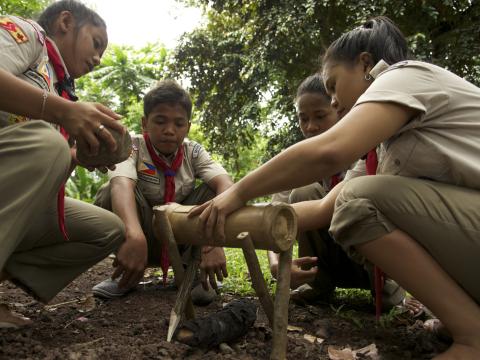Scouting improves mental health

Being a Scout or Girl Guide helps to lower the risk of mental illness later in life, according to researchers from Edinburgh and Glasgow universities.
From their study of 10,000 people from across the United Kingdom who were born in 1958, they discovered a significant number of those who participated in the movements as children tended to have better mental health at age 50.
In fact, former Scouts and Girl Guides were 15% less likely to suffer from anxiety or mood disorders compared with others.
The study was supported by the Economic and Social Research Council, and was published in the Journal of Epidemiology and Community Health.
Lead researcher Professor Chris Dibben believes that the same benefits would apply to today's participants. "Given the high costs of mental ill health to individuals and society, a focus on voluntary youth programmes such as the guides and scouts might be very sensible," he said.
Building resilient kids is also another big benefit of being involved in the Scout Movement. Scouts participate in many outdoor activities and major events like Jamborees where they are away from home for up to 14 days, learning how to care for themselves and others.
"I am really proud that Scouting provides young people with an opportunity to develop the skills they need to be resilient and deal with what life throws at them," said TV personality and Chief Scout of The Scout Association (UK), Bear Grylls.
Read the full article at BBC News.